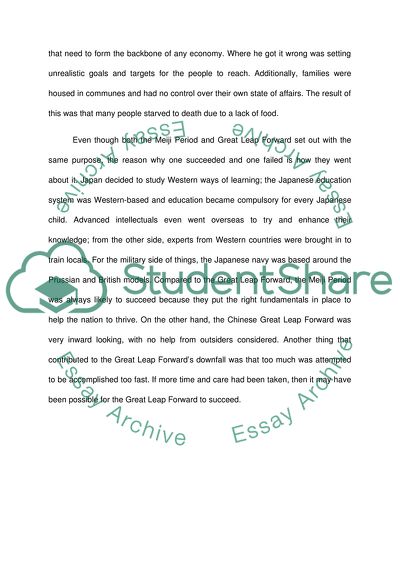Comparison of Japans Meiji Period with Chinas Great Leap Forward Essay. Retrieved from https://studentshare.org/history/1593693-comparison-of-japans-meiji-period-with-chinas-great-leap-forward
Comparison of Japans Meiji Period With Chinas Great Leap Forward Essay. https://studentshare.org/history/1593693-comparison-of-japans-meiji-period-with-chinas-great-leap-forward.


